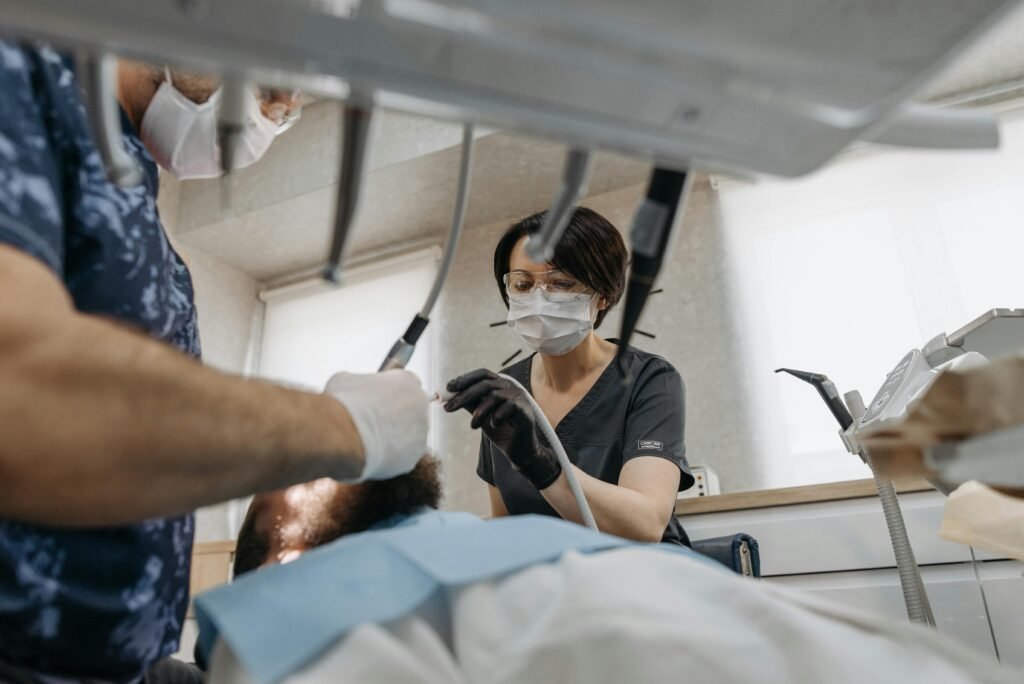Technology has revolutionized various industries, and education is no exception. For dental implant professionals, advancements in technology provide unparalleled opportunities for growth, knowledge acquisition, and practice enhancement. Through digital tools, innovative platforms, and interactive resources, dental professionals can improve their skills, stay updated with the latest trends, and offer better patient care.
1. Online Learning Platforms
The rise of online learning platforms has transformed traditional education paradigms. Dental implant professionals can access a plethora of resources from anywhere at their convenience. Online platforms provide interactive lessons, video demonstrations, and discussion forums that foster collaborative learning. This flexibility allows professionals to tailor their study schedules, ensuring that they can balance their ongoing clinical responsibilities with their educational pursuits. Online courses focused on dental implants often offer a more in-depth focus on specific topics, helping professionals to master techniques and theories quickly. This accessibility ensures that dentists and dental specialists have ongoing educational opportunities, preparing them for the challenges of modern dentistry.
2. Virtual Reality and Augmented Reality Simulation
Virtual reality (VR) and augmented reality (AR) are game-changers in dental education. These technologies allow implant professionals to engage in realistic simulations tailored to their specialties. With VR, professionals can immerse themselves in a virtual environment where they can practice surgical techniques without any risk to patients. AR technology overlays digital information in the real world, enabling practitioners to visualize complex anatomical features during training. Such tools help enhance hand-eye coordination, spatial awareness, and decision-making skills. This immersive experience prepares dental implant professionals to tackle real-world challenges with heightened confidence and competence.
3. Access to Continuing Education Courses
Continuing education courses provide structured learning tailored to the evolving needs of dental professionals. These programs offer a wide range of topics, from advanced surgical techniques to innovations in implant technology, ensuring clinicians stay at the forefront of their field. Many platforms, including specialized ones, provide opportunities to explore continuing education courses for dental implants, helping professionals refine their skills and expand their knowledge base. These courses often include practical modules that allow participants to bridge the gap between theory and real-world application, creating a well-rounded learning experience.
They foster valuable networking opportunities with peers and industry leaders, enabling collaboration and knowledge exchange. By participating in these courses, dental practitioners enhance their competence, remain informed, and are better equipped to deliver superior patient care.
4. Mobile Applications for Dental Learning
Mobile applications have revolutionized the accessibility of dental education, making it more convenient for professionals to integrate learning into their daily lives. These apps offer a wide array of features, such as interactive tutorials, detailed case studies, and cutting-edge research articles, all accessible from smartphones or tablets. For dental implant professionals, many apps focus specifically on implant techniques, treatment planning, and patient care, providing a targeted and efficient learning experience. Some applications also include gamified learning tools, such as quizzes and challenges, to make the process engaging and enjoyable. By tracking progress and offering personalized recommendations, these tools help learners focus on areas where improvement is needed.
Apps often include forums or networking features that connect users with experts and peers, creating a virtual learning community. This on-the-go accessibility enables dental professionals to stay informed and hone their skills without disrupting their busy schedules, ensuring continuous growth and mastery of their craft.
5. Webinars and Online Workshops
Webinars and online workshops have gained immense popularity as a means of professional development. These live sessions allow dental implant professionals to interact with industry experts, ask questions, and gain insights into innovative practices. Topics range from marketing strategies to advanced surgical techniques, providing a diverse learning experience. The recorded versions of these sessions facilitate access to information that professionals might otherwise miss. While live interaction is beneficial, having access to recorded content promotes continuous learning at one’s own pace.
6. E-Books and Research Databases
Access to e-books and research databases has significant implications for dental education. Professionals can explore the latest research and developments in dental implants to stay abreast of emerging trends and practices. This access to literature encourages evidence-based practice, ensuring that their skills align with contemporary scientific findings. While traditional textbooks may require significant investment, e-books often present affordable alternatives. Additionally, many research databases are available through dental associations or educational institutions, providing a wealth of knowledge at little to no cost.
7. Enhanced Collaboration through Technology
Collaboration among dental professionals is essential for comprehensive learning and practice improvement. Technology facilitates enhanced collaboration through online forums, networking groups, and social media communities. These platforms enable practitioners to share experiences, discuss challenges, and seek advice from their peers. Moreover, technology fosters collaboration on complex cases through virtual consultations. Professionals can connect with specialists from various locations, leading to multifaceted insights that strengthen their practice. Such collaborations not only enhance personal growth but also improve patient outcomes by ensuring that multiple perspectives inform treatment plans.
8. Continuous Feedback and Assessment Tools
Technology fosters a culture of continuous feedback and assessment, which is essential in any educational framework. Digital platforms often provide tools that allow educators to assess the performance of dental professionals in real-time. This immediate feedback helps learners identify their strengths and areas needing improvement. Assessment tools can track professionals’ progress over time, providing data-driven insights into their development. This personalized approach ensures that each professional undergoes a tailored learning experience, increasing their overall competency in dental implants.

Technology has profoundly transformed the education landscape for dental implant professionals, equipping them with tools to enhance their knowledge and practice. From online learning platforms and virtual reality simulations to mobile apps and continuing education courses, these advancements offer flexible, accessible, and effective learning solutions. By embracing these technologies, dental practitioners can stay updated on the latest industry trends, refine their skills, and deliver superior patient care. Collaborative platforms and digital feedback tools further enrich the learning process by encouraging peer-to-peer interaction and personalized progress tracking. Investing in these innovations ensures that dental professionals remain competitive in a fast-evolving field. Ultimately, leveraging technology for education fosters a culture of excellence, enabling practitioners to meet the demands of modern dentistry and improve patient outcomes.

Daniel J. Morgan is the founder of Invidiata Magazine, a premier publication showcasing luxury living, arts, and culture. With a passion for excellence, Daniel has established the magazine as a beacon of sophistication and refinement, captivating discerning audiences worldwide.





